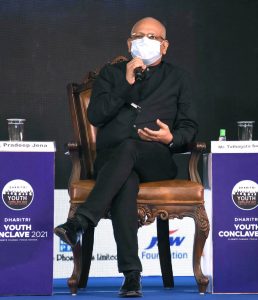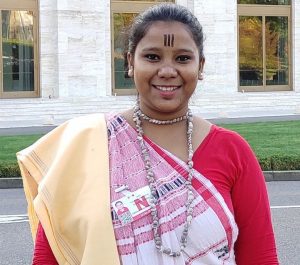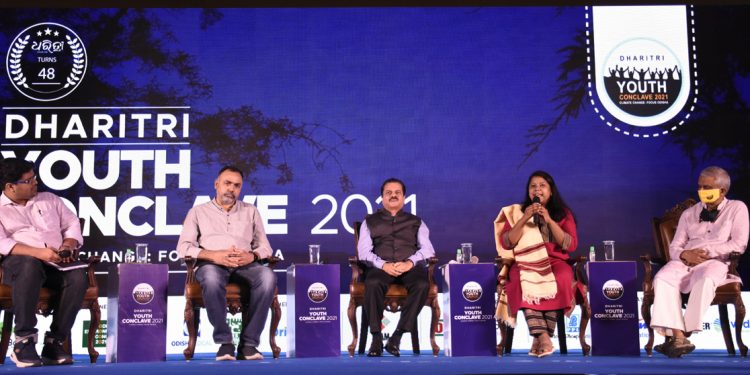Bhubaneswar: From witnessing unseasonal floods to increasing frequency in cyclones, climate change has affected one and all on the globe. There have been numerous talks at different levels, including summit meetings, on how to protect this fragile planet from imminent extinction.
This and many other aspects of climate change were dissected at a conclave here Wednesday. The event ‘Youth Conclave on Climate Change’ was organised by leading daily Dharitri, on the occasion of its 48th birth anniversary.
The event saw participation by various stakeholders such as young climate activists and those representing the government, nongovernment organsiations, world bodies like UNICEF and civil society.
Young climate activists Archana Soreng, Soumya Ranjan Biswal, Chief of Field Office, UNICEF Odisha, Monika O Neilsen, British Deputy High Commissioner, Kolkatta, Nick Low, Director General of IMD Mrutyunjay Mohapatra, Development Commissioner cum Additional Chief Secretary Pradeep Jena, water and climate change expert Ranjan Panda, Dharitri and Orissa Post Editor Tathagata Satpathy were on the panels.
Split into two sessions, the event was moderated by Sujit Mahapatra, founding volunteer of Bakul Foundation and independent journalist Sampad Patnaik.
The event began with the welcome speech by Adyasha Satpathy, chief executive of Dharitri and Orissa POST. She said Dharitri has always given importance to youth and environment. Talking about the background of the conclave, she said the youth conclave has been organised to drive consciousness on climate change at local level.

Monika and Nick shared their experiences on climate change and how it is being observed in different parts of the world. “Prior to my working in India, I was in Papua New Guinea where I had witnessed the impact of climate change when a rise in sea levels affected the island dwellers massively. Irrespective of quality of education children will be deprived of schools due to climate change,” Monika said.
Speaking along the same lines, Nick mentioned that in past many civilizations have been destroyed completely due to climate change factors. “Eight out of 10 warmest summers were received in the UK this year. Moreover, it’s not just about hot temperatures but about ferocious weather patterns observed all across the globe,” he said.

Pradeep Jena said Odisha is one of the first states to start acting on climate change action plan. “Over last 20 years we witnessed around nine major cyclones. After Super Cyclone, we faced Hudhud, Fani and Phailin which showed something serious is happening,” he added.

Soumya, 24, said he has been witnessing the impact of climate change in his village from his childhood. “During every cyclone we have to evacuate from the area. It is important that safety of the marine ecosystem should be given paramount importance for the survival of people living in coastal areas,” Soumya mentioned.

In the second session Archana, 26, a member of the UN Secretary General’s Youth Advisory Group on Climate Change, spoke vividly on the role of women in climate change. Archana talked about why it’s necessary to empower women to lead as they can bring the change in all walks of life and make a difference on climate change.

Sharing his expertise, IMD chief Mrutyunjaya Mohapatra said Odisha with its unique topography is a gateway of cyclones. “The intensity of cyclones, lightning, heat waves is increasing in the state. While rural and tribal communities are worst affected by climate changes, an increasing number of flash floods and water-borne diseases in urban dwellings has affected us. Detection and forecasting of the same is important.”
Highlighting on the issue, water activist Ranjan panda said people react to big incidents such as cyclone but the constant rise in sea levels which has devastating effects on coastal habitats in the state is usually getting unnoticed.
Concluding the sessions, Tathagata Satpathy, Editor of Dharitri, said while detection and forecasting of drastic climate events are an important step in preserving life and property we should think a step beyond saving lives and make goals that would conserve and preserve our environment in the long run.
PNN






































